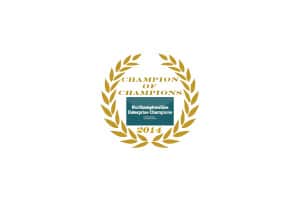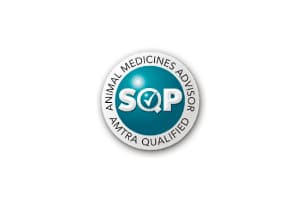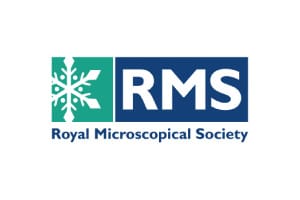Wormcount for Equines
Wormcount.com screens provide a detailed insight into the internal parasitic health of your equine animal including gastro-intestinal (gut) roundworms, lungworms, protozoans, liver fluke and tapeworms (when present in the sample). This enables targeted worming of only those horses which need treatment, using the most appropriate chemicals for the specific worm burden.
Over-worming is causing great concern as resistance to most worming products is already widespread. The BVA estimates that just 20% of horses are carrying 80% of the worm burden. This means that potentially 80% of horses are being wormed when they do not need to be. The BVA has called for “urgent and essential action” to halt this trend.
Wormcount.com offers fast, reliable results as well as expert aftercare advise regarding whether to worm and if so, with which product. Our worm egg screens also includes (at no additional charge) a report on the level of fibre present within the sample, which can be an indication of digestion or teeth issues. Again, our expert team are available, free of charge, to discuss the results and offer advice regarding the next steps.
Further Information
Wormcount.com gives you direct access to a fast, professional veterinary laboratory without the need for a referral from your Vet.
Our laboratory has been purpose designed with bespoke equipment and facilities, allowing us to provide a professional and high-quality service direct to the public and veterinary practices. All of our analysts undergo rigorous training before they undertake any testing. Even once approved for testing, they undergo regular ‘blind’ spot-checks and ongoing external personal development sessions to keep them at the forefront of the industry throughout their careers. Our strict bio-security and method procedures ensure safe, repeatable and accurate results from every sample as they transit through the lab.
We have an excellent customer service reputation and our administration and support teams are very welcoming of any queries you have or support you require at any stage of the process. Once you have your results, we will discuss the worming options with you (if considered necessary based on the results) and discuss any further action that is required. Unlike some laboratories, all of our aftercare advise is provided at no additional charge to any of our direct access clients.
- All screens are undertaken within our own laboratory by our highly trained analysts. Screens are undertaken on a sample of your animal’s faeces that you send to us in one of our specially designed collection kits
- A Faecal Egg Count provides a quantification of the number of worm eggs in your animal’s faeces (poo) which is therefore an indication of the number of adult female worms in your animal’s gut.
- Each species of worm egg is identified and, where appropriate, quantified to give an indication of the level of infestation.
- Worm egg screens also detect Eimeria lukarti (Coccidia) and any excess fibre in the sample as standard.
- The worm egg screen results are presented in an email report as ‘eggs per gram’ (epg) of faeces. There is an easy to understand key on your Wormcount.com result sheet.
- Tapeworms are intermittent shedders and do not necessarily show on a worm egg screen. If they are present, they will be identified and reported. It is therefore important to undertake at least annual tapeworm treatment, or regular tapeworm specific tests. Please see further information in ‘how often to undertake a screen’.
Some worms can appear as mature, egg-laying adults within a few weeks from being picked up as eggs or larvae by your animal. Regular screening is critical to knowing what is happening within your horses and allowing targeted treatment in a timely manner.
A popular worm counting plan is to test three times annually at regular intervals, then to winter worm for tapeworms, bots and encysted redworms. Worm counting for horses is typically undertaken as follows:
- Worm count in March or April (targeted treatment only if necessary)
- Worm count in June or July (targeted treatment only if necessary)
- Worm count in September or October (targeted treatment only if necessary)
- “Winter Worm” in December or January (we can advise which product is most appropriate, depending on your horse and their worming history)
Lungworm in equines can cause coughing, lethargy and increased breathing rates, but it can be difficult to distinguish these symptoms from other respiratory tract conditions, therefore a lungworm screen is invaluable. Unfortunately lungworm is also often asymptomatic, particularly in younger animals and donkeys. Even if the animal is showing no symptoms, they can still be passing out larvae and spreading the infestation.
The equine lungworm “Dictyocaulus arnfieldi” is particularly prevalent in donkeys but can pass to horses who graze with them. Further information can be found on our lungworm page.
Liverfluke or “Fasciola hepatica” can affect grazing animals, including horses, although it is more commonly associated with cattle and sheep. Liverfluke is picked up by the animal eating the Galba truncatula mud snail when grazing, typically in marshy/wet pasture in relatively warm conditions. Liverfluke is typically most prevalent in summer and autumn months.
Symptoms in equines can include anaemia, weight loss, chronic diarrhoea and raised liver enzymes. Due to the irregular shedding pattern of liverfluke in equines, a negative faecal screen in horses is not necessarily definitive. Faecal screens for liver fluke are very useful in certain circumstances but if you consider your horse or donkey to be exhibiting symptoms of liverfluke, you should consult your vet to arrange a blood test.
Due to resistance to several chemical groups, wormers should only be used when absolutely necessary. Undertaking a worm egg screen allows you to decide whether treatment is required at that time, or to confirm whether your current worming programme is working.
Following reporting of a result, we have expert advisers available who will be able to help with whether you should undertake a worming treatment and if so, which product is considered the most appropriate. This will be based on your horse’s age and circumstances, the time of year, the worm burden (quantity and species) and also the worming history.
All of our aftercare advise is provided to all of our direct access customers at no additional charge.

Testimonials






